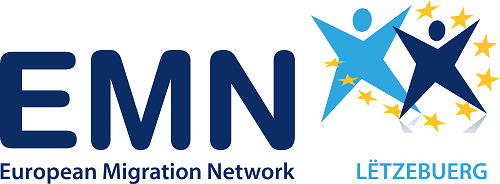The issue of non-return of rejected international protection applicants does not enjoy a high political profile on its own, but has been discussed as part of a global debate on asylum.
Significant efforts are required when considering the wide spectrum of possible reasons of non-return, some reasons depending on the countries of destination, others on the returnee himself/herself. In this respect, reasons of non return range from the nonrespect of deadlines, the issuance of travel documents, postponement of removal for external reasons to the returnee, for medical reasons, the resistance of the third-country national and the lack of diplomatic representation of Luxembourg, to name but a few.
In regards to the procedure, in Luxembourg the rejection of the international protection application includes the return decision. The Minister in charge of Immigration, through the Directorate of Immigration, issues this decision. The return decision only becomes enforceable when all appeals are exhausted and the final negative decision of rejection of the competent judicial authority enters into force, as appeals have suspensive effects. In general, the decision provides for a period of 30 days during which the applicant has the option to leave voluntarily and to benefit from financial support in case of assisted voluntary return through the International Organization for Migration (IOM).
Among the cases where return is not immediately possible, a considerable distinction has to be made in regards to the reasons for the non-return. Indeed, in cases where the delay is due to the medical condition of the returnee or to material and technical reasons that are external to the returnee, a postponement of removal will be granted.
The study also puts forth a number of best practices such as the Croix-Rouge’s involvement in police trainings, their offer of punctual support to vulnerable people through international networking or the socio-psychological support given to vulnerable people placed in the detention centre among others.
A special regard has to be given to AVRR programmes and their pre-departure information and counselling, the dissemination of information and the post-arrival support and reintegration assistance. Indeed, stakeholders singled the AVRR programme out as a best practice and the Luxembourgish government has made voluntary return a policy priority for a long time.
However, this increased interest in voluntary returns has to be put into perspective as research shows that sustainable success of voluntary return and reintegration measures is only achieved for a very restricted number of beneficiaries (namely for young, autonomous and dynamic returnees with sizeable social networks and who were granted substantial social capital upon return). Hence, returning women remains a sensitive issue, especially if they were fleeing abusive relationships. Another factor contributing to hardship set forth by research is the difficult reintegration of returnees that have lived outside of their country of return for a prolonged period of time and are therefore unable to rely on social networks for support or for a sense of belonging.
Based on these considerations, NGOs and academia cast doubts on the ‘voluntary’ nature of these return programmes, their criticism targeting the misleading labelling of these policy measures.

